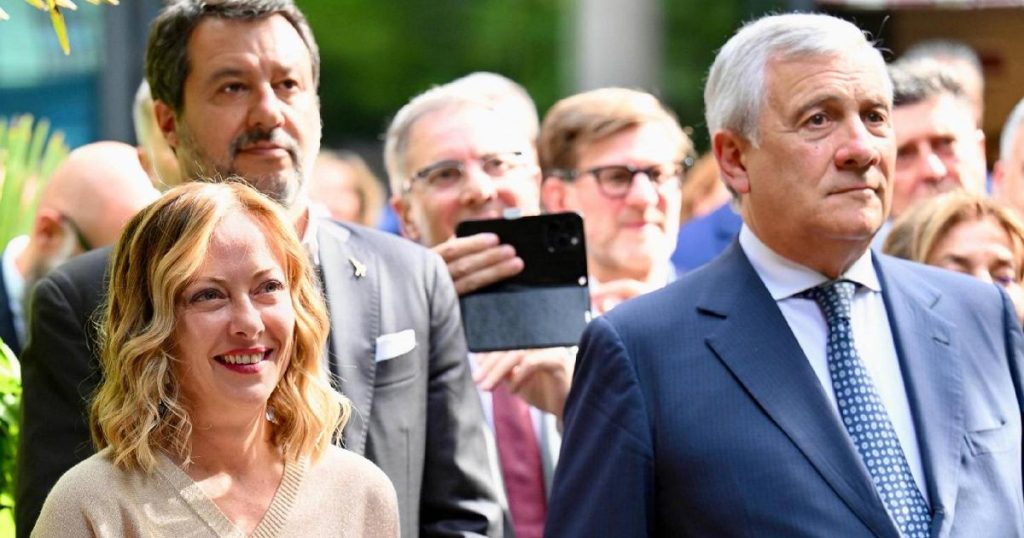The recent voting in Austria has intensified tensions among political allies in Italy, with ongoing disagreements over various issues such as citizenship and autonomy. Fratelli d’Italia, Forza Italia, and Lega continuously distance themselves and fuel tensions within the majority coalition, from debates over Ius Scholae to autonomy. While Forza Italia emphasizes that political battles are won in the center, Lega claims to represent a wave of change and is preparing for the Pontida event with “patriotic” friends. The infighting among supporting parties has increased since the European elections in June, with Giorgia Meloni, leader of Fratelli d’Italia, remaining silent amidst the chaos.
Giorgia Meloni has been facing internal disagreements within the coalition government, with debates over citizenship and autonomy remaining unresolved. The governor of Calabria, Roberto Occhiuto, and Forza Italia continue to push for the freezing of reforms until they are fully implemented. Friction over parliamentary battles like the omnibus decree risk escalating further as the budgetary process approaches. While the Prime Minister works tirelessly at Palazzo Chigi, she refrains from intervening in the ongoing disputes. Antonio Tajani of Forza Italia has made strong statements demanding the exclusion of far-right parties from the Austrian government, sparking backlash from Lega members.
Matteo Salvini of Lega responded indirectly to Tajani’s comments, questioning the need to label certain countries as neo-Nazi territories. The growing tensions between Lega and Forza Italia are causing friction within the coalition, but they are urged to remain united when it comes to voting. Meloni’s supporters are cautious not to take sides in the dispute between the two allies, trying to balance a modern conservatism approach in Europe with the annoyance towards labels that exclude democratically elected political forces. Despite the disagreements, there is a call for collaboration between center-right parties to avoid playing into the hands of the left.
Forza Italia recently joined the international democratic union where parties associated with the European People’s Party are represented, including the outgoing Austrian Chancellor Karl Nehammer. This move represents a different political path compared to the “patriots” led by Viktor Orban, who have all congratulated the success of Herbert Kickl. Meanwhile, Forza Italia is focused on the delicate process of the European Parliament hearings for the Italian Commissioner Raffaele Fitto, ensuring that the rise of the far-right in Austria will not negatively impact his prospects. Fitto’s candidacy is a priority for the party, leaving behind the distractions caused by the political tensions within the coalition government.
In conclusion, the ongoing political disagreements within the Italian coalition government are causing tensions among allies, especially in light of recent elections in Austria. Despite the differences in priorities and views, there is an effort to maintain unity within the coalition when it comes to crucial votes. The leaders of various parties are working to navigate the complex political landscape and maintain a balance between their respective ideologies and the need for collaboration to advance common goals.


